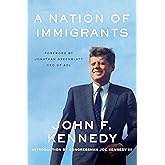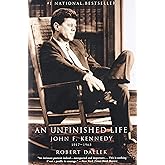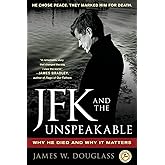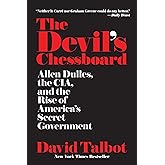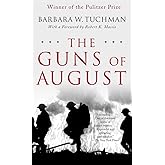
Enjoy fast, free delivery, exclusive deals, and award-winning movies & TV shows with Prime
Try Prime
and start saving today with fast, free delivery
Amazon Prime includes:
Fast, FREE Delivery is available to Prime members. To join, select "Try Amazon Prime and start saving today with Fast, FREE Delivery" below the Add to Cart button.
Amazon Prime members enjoy:- Cardmembers earn 5% Back at Amazon.com with a Prime Credit Card.
- Unlimited Free Two-Day Delivery
- Streaming of thousands of movies and TV shows with limited ads on Prime Video.
- A Kindle book to borrow for free each month - with no due dates
- Listen to over 2 million songs and hundreds of playlists
- Unlimited photo storage with anywhere access
Important: Your credit card will NOT be charged when you start your free trial or if you cancel during the trial period. If you're happy with Amazon Prime, do nothing. At the end of the free trial, your membership will automatically upgrade to a monthly membership.
Buy new:
-22% $12.43$12.43
Ships from: Amazon.com Sold by: Amazon.com
Save with Used - Good
$7.24$7.24
Ships from: Amazon Sold by: ZBK Wholesale

Download the free Kindle app and start reading Kindle books instantly on your smartphone, tablet, or computer - no Kindle device required.
Read instantly on your browser with Kindle for Web.
Using your mobile phone camera - scan the code below and download the Kindle app.

OK
 Audible sample Sample
Audible sample Sample 


Thirteen Days: A Memoir of the Cuban Missile Crisis Paperback – November 17, 1999

Explore your book, then jump right back to where you left off with Page Flip.
View high quality images that let you zoom in to take a closer look.
Enjoy features only possible in digital – start reading right away, carry your library with you, adjust the font, create shareable notes and highlights, and more.
Discover additional details about the events, people, and places in your book, with Wikipedia integration.
Purchase options and add-ons
"A minor classic in its laconic, spare, compelling evocation by a participant of the shifting moods and maneuvers of the most dangerous moment in human history." ―Arthur M. Schlesinger, Jr.
During the thirteen days in October 1962 when the United States confronted the Soviet Union over its installation of missiles in Cuba, few people shared the behind-the-scenes story as it is told here by the late Senator Robert F. Kennedy. In this unique account, he describes each of the participants during the sometimes hour-to-hour negotiations, with particular attention to the actions and views of his brother, President John F. Kennedy. In a new foreword, the distinguished historian and Kennedy adviser Arthur Schlesinger, Jr., discusses the book's enduring importance and the significance of new information about the crisis that has come to light, especially from the Soviet Union.
Illustrated- Print length185 pages
- LanguageEnglish
- PublisherW. W. Norton & Company
- Publication dateNovember 17, 1999
- Dimensions5.5 x 0.5 x 8.3 inches
- ISBN-100393318346
- ISBN-13978-0393318340
The Amazon Book Review
Book recommendations, author interviews, editors' picks, and more. Read it now.
Frequently bought together
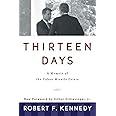
Similar items that may ship from close to you
Editorial Reviews
Review
― David Schoenbrun, New York Times Book Review
"This is valuable not only as a record of the operations of the Administration during the great facedown, but as an instance of responsible brinkmanship."
― Kirkus Reviews
About the Author
Product details
- Publisher : W. W. Norton & Company; 59419th edition (November 17, 1999)
- Language : English
- Paperback : 185 pages
- ISBN-10 : 0393318346
- ISBN-13 : 978-0393318340
- Item Weight : 2.31 pounds
- Dimensions : 5.5 x 0.5 x 8.3 inches
- Best Sellers Rank: #58,410 in Books (See Top 100 in Books)
- #26 in Nuclear Weapons & Warfare History (Books)
- #79 in Russian History (Books)
- #1,171 in World History (Books)
- Customer Reviews:
About the author

Discover more of the author’s books, see similar authors, read author blogs and more
Customer reviews
Customer Reviews, including Product Star Ratings help customers to learn more about the product and decide whether it is the right product for them.
To calculate the overall star rating and percentage breakdown by star, we don’t use a simple average. Instead, our system considers things like how recent a review is and if the reviewer bought the item on Amazon. It also analyzed reviews to verify trustworthiness.
Learn more how customers reviews work on AmazonReviews with images
-
Top reviews
Top reviews from the United States
There was a problem filtering reviews right now. Please try again later.
It would be interesting to read firsthand accounts from others in the "Ex Comm". I am sure that RFK was at least slightly biased with regard to his assesment of JFK's (and his own) performance, despite his genuine attempts otherwise.
Overall: Execellent, and an easy, quick read,... highly recommended.
From there, Kennedy describes some of the initial deliberations of the Executive Committee of the National Security Council (the "Ex Comm"). He tells about the competing recommendations they offered, which invariably led to the excruciating decisions that finally only the President could make. The first major decision took up the question of an appropriate initial response. After President Kennedy rejected the plan of a military strike and adopted the idea of naval blockade of Cuba, there were other questions to answer. Many of these were related to the task of striking a balance. On the one hand, it was imperative that the U.S. forcefully confront Khrushshev over the treachery and provocation of the Soviet Union. On the other hand, it was also necessary to leave room so that the Chairman could retain honor and respectability while backing down. As Kennedy describes it, this balancing act was performed by the President as he stood between the implicit threats from the Soviets on one side, and calls from U.S. military leaders and hawkish members of Congress for at least a strike, or even a full invasion of Cuba, on the other side.
Kennedy relates a number of nail-biting episodes as the crisis unfolded. He tells, for example, about the President meeting with Soviet Foreign Minister Andrei Gromyko two days after U.S. officials became aware of the build up, and how Gromyko denied any such activity. He also reports how, at his brother's request, he made a visit to Soviet Ambassador Anatoly Dobrynin who, like Gromyko, held to the same official line: no long-range missiles had been delivered to Cuba, and the Soviet government had no intention of doing any such thing. Kennedy gives the reader a good sense of what it was like for the President to hear from the Ex-Comm about every possible contingency before making day-to-day and sometimes minute-to-minute decisions that brought with them huge consequences. Finally, Kennedy relates the official agreement according to which the Soviet Union would remove their weapons systems from Cuba and the United States would end the quarantine and pledge not to invade the island nation.
In addition to a sense of relief, I had several reactions as I finished this book. First, I was impressed at how well it is written. Throughout, Kennedy exhibits a crisp, easy-to-read style, the eloquence of precise and clear language.
Second, I was struck by the consistent humanity of this unique story. For example, if they go on long enough, even the most grave circumstances get interrupted by humor and the ridiculous. The Cuban Missile Crisis was no exception. Kennedy relates some of this. For example, upon realizing that something would have to be done in response to the aggression and deceit of the Soviets, Robert passed a note to his brother saying, "I now know how Tojo felt when he was planning Pearl Harbor" (31). And I had to smile when reading the story of how, instead of traveling in a long line of limousines which would have tipped off the press, ten men crammed into Kennedy's car for a ride to the White House (43).
Third, I felt suspicious whenever I sensed that Kennedy's own presidential aspirations and his natural desire to preserve his brothers' dignity overwhelmed the narrative. For example, he chalks up the Bay of Pigs debacle to a failure to solicit a variety of competing opinions. That action was precipitated by a unanimity of thought, says Kennedy, which closed off the possibility of a better decision (112). It also seemed more than a coincidence that Kennedy never mentions his official title, U.S. Attorney General. From beginning to end, he casts himself primarily as the President's brother, close advisor and assistant. An uniformed reader might be forgiven for concluding that Robert was the Vice President, instead of Lyndon Johnson to whom the author grants nothing more than a cameo appearance.
Most of all, I was glad I had read this book. In it, Robert Kennedy accomplished exactly what he set out to do: to tell the incredible story of the Cuban Missile Crisis from his own singular perspective.
Robert Kennedy explains the missile crisis in its entirety in rather brief terms. Since his work is really just a personal recollection of the events of October, he is not compelled to, nor would he be required to, back up his information. As a primary source journal, this book is brief on facts but long on the human side of the conflict. RFK places emphasis on the feelings exhibited by the President and others. The best example, for instance, when, it is clear that Soviet ships will enter the blockade zone: "His hand went up to his face and covered his mouth. He opened a closed his fist. His faced seemed drawn, his eyes pained, almost grey. We stared at each other across the table. For a few fleeting seconds, it was almost as though no one else was there and he was no longer the President." RFK is also able to explain the mood of the close advisors to the President, in a way that a historian looking in on the event from some future date could not. Writing about the escalation of events and the weight of the possibility of nuclear annihilation, he writes "And there was the feeling that the noose was tightening on all of us, on Americans, on mankind, and that the bridges to escape were crumbling"
Robert Kennedy, writing from the distance of 1968, is quick to defend the role of Adlai Stevenson, the US ambassador to the United Nations, for his suggestion, then very unpopular, but eventually adopted in secret, of trading the removal of Soviet missiles in Cuba for the NATO missiles. RFK then criticizes General Curtis LeMay for his insistence on a airstrike and invasion, ideas that were very popular during the unfolding of the crisis, and even after it was resolved. The invaluable recollections of RFK are the only source of information on what actually was said in these moments, at least until the release of the Kennedy Library Tapes in 1983. Robert Kennedy's primary source information in this regard gives an excellent, and exciting example of the real conflict that existed inside the White House, and the very real possibility that the view that armed conflict, followed by nuclear annihilation, was a viewpoint that could have swayed the President.
In his 1999 introduction to the memoir, Arthur M. Schlesinger, Jr confirms the portrait of JFK at the time of the crises. Schlesinger writes that RFK portrays the President as `a remarkably cool, non-hysterical, self-possessed leader, aware of the weight of the decision...steering his advisers perseveringly in the direction he wanted to go."
RFK's memoir of the crisis in October 1962 is an excellent primary source document where one can begin the study of the Cuban Missile Crisis. A quick, concise, if not particularly objective review of the events that transpired, (it was obviously written with RFK's Presidential aspirations in mind), Thirteen Days is an example of how a primary source can provide the first step of analysis of an event, as viewed by future generations.
Top reviews from other countries
The last time the two nuclear superpowers were locked in a standoff, the world held its breath.
In October 1962 a U.S. spy plane discovered the Soviet Union was secretly building missile bases in Cuba.
Over the course of 13 tense days, humanity’s future hung in the balance as U.S. President John F. Kennedy demanded the missiles be removed and Soviet leader Nikita Khrushchev refused.
In the end, Khrushchev agreed to dismantle the Cuban missile sites, and Kennedy agreed to quietly remove U.S. missiles from Turkey.
The latter is described in Thirteen Days, Robert F. Kennedy’s brief memoir of the Cuban missile crisis (which was unfinished when he was assassinated in 1968).
As hopes for a peaceful resolution faded, JFK asked RFK -- the president’s brother and closest confidante as well as the U.S. Attorney General -- to talk to Anatoly Dobrynin, the Soviet ambassador in Washington.
In that 11th-hour private meeting with RFK, with whom he was already acquainted, Dobrynin asked about the U.S. missiles in Turkey. Earlier in the crisis the Soviets has formally requested their removal, but JFK had no wish to acquiesce to Soviet threats -- even though he regarded those missiles as antiquated and useless.
NO QUID PRO QUO
In that evening meeting with Dobrynin, RFK told the Soviet ambassador there could be no quid pro quo.
“However, I said President Kennedy had been anxious to remove those missiles from Turkey and Italy for a long period of time,” RFK told Dobrynin. “He had ordered their removal some time ago, and it was our judgment that within a short time after this crisis was over, those missiles would be gone.”
Earlier in the book, RFK says JFK had -- on several occasions over the previous 18 months -- asked the State Department to reach an agreement with Turkey for the withdrawal of Jupiter missiles from that country.
“They were clearly obsolete, and our Polaris submarines in the Mediterranean would give Turkey far greater protection.”
Although they were adversaries, neither JFK nor Khrushchev wanted nuclear war. Each was willing to be flexible and to allow the other to save face.
COMPARE TO TODAY
Contrast the sense of urgency -- and willingness to compromise -- in 1962 with how both Russia and the U.S. are locked into a collision course over Ukraine in 2023.
Indeed, the roles are almost reversed. Instead of the U.S. protesting Soviet missiles in Cuba, 90 miles from Florida, Russia has for years opposed a de facto NATO presence on Russia’s border in Ukraine, a country through which Russia has suffered several catastrophic invasions. Hence Russia’s 2022 invasion of Ukraine after its warnings went unheeded.
The world’s two nuclear superpowers move ever closer to a direct conflict as the U.S. has poured more than US$100 billion into Ukraine to fight Russia.
But unlike October 1962 no one seems to care about a looming collision of the nuclear superpowers.
So RFK’s short memoir of the Cuban missile crisis is even more relevant today than when it was first published in 1969.
The contrast between the key players in Washington today and the brain trust of 1962 couldn’t be starker.
NO “MISSILES OF OCTOBER”
Earlier in 1962, the most widely acclaimed book on the origins of World War I -- Barbara Tuchman’s The Guns of August -- rolled off the presses.
President Kennedy, who had majored in history at Harvard, read The Guns of August as soon as it was published and grasped its lesson on how the major European powers in 1914 inadvertently stumbled into what (until World War II) would be history’s bloodiest war.
The Guns of August “had made a great impression on the President,” his brother writes in Thirteen Days.
“I am not going to follow a course which will allow anyone to write a comparable book about this time, The Missiles of October,” RFK recalls the president saying on Oct. 26. “If anybody is around to write after this, they are going to understand that we made every effort to find peace and every effort to give our adversary room to move.”
LESSONS LEARNED
So what was learned from the world’s near-death experience in October 1962?
In Thirteen Days RFK listed some of the key lessons:
--The time that was available to work “secretly, quietly, privately.”
--“How important it is that the president have the recommendations and opinions of more than one individual, of more than one department, and of more than one point of view. Opinion, even fact itself, can best be judged by conflict, by debate. There is an important element missing when there is unanimity of viewpoint.”
-- “The final lesson of the Cuban missile Crisis is the importance of placing ourselves in the other country’s shoes”
“MINUTES AWAY FROM ANNIHILATION”
The last time the world really seemed to care about the threat of nuclear war was the early 1980s. That was when Soviet and American experts agreed that such a conflict must be avoided.
That conference is featured in the 1984 documentary “On the 8th Day,” which describes what would happen of only a fraction of U.S. and Russian weapons were unleashed -- even if only one side did so. And those weapons packed only a fraction of the destructive force of today’s nuclear arsenals.
The current edition of Thirteen Days includes an afterword written in 1971, three years after RFK’s death. “Today,” it says, meaning 1971, “the explosive power of a single thermonuclear bomb exceeds the total explosive power of all bombs used in all wars of the past,” including the murderous 20th Century.
“Today,” the afterword to Thirteen Days adds, still referring to 1971, “no point on the globe lies more than minutes away from annihilation by a ballistic missile.”
World War I was called the war to end all wars, presumably to make the murderous bloodbath more marketable to ordinary people who paid the biggest price. But within a generation they were back at it, tripling or quadrupling the death toll of 1914-18.
Given that Russia and the U.S. have enough nuclear warheads to end human civilization, a war between those superpowers promises to be the real thing -- a war that will indeed end all wars by annihilating the species that fights them.
AN EASY READ
This book is an easy read. The part written by RFK is only about 80 pages and is uncommonly well written. Simple words. Short sentences. Right to the point. No padding with colour or background. This firsthand account of humanity at the precipice is a priceless resource for scholars but could be easily read by teenagers.
Obviously this isn’t an impartial account. RFK was writing about himself, his murdered brother and their close associates. This isn’t only one side of the crisis, it’s also only one side of the American side. Among the key players the only elected official was the president; Congress was informed rather than consulted, and then only as a last-minute formality.
But no one can argue with the outcome: nuclear war was averted.









